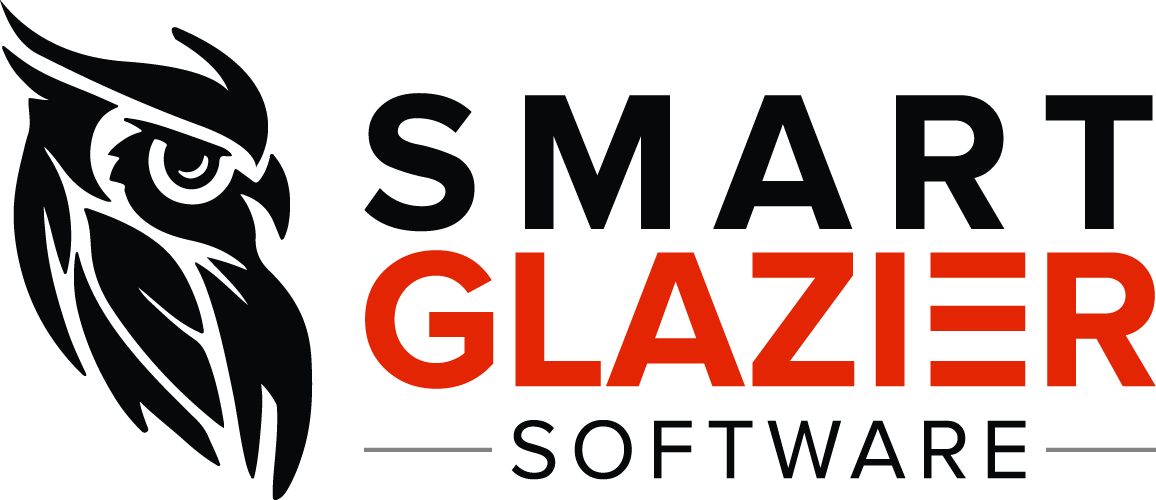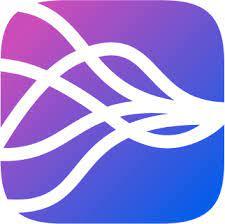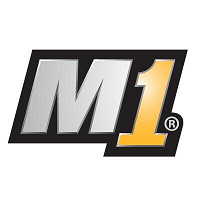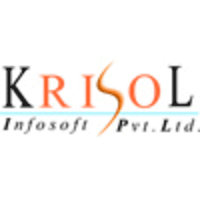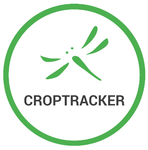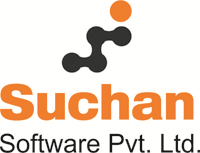What Is Glass Industry Software?
Software created especially for companies in the glass industry is referred to as "glass industry software." This program includes a number of tools and features that improve and expedite the operations and procedures of businesses that manufacture, fabricate, and distribute glass. It provides a complete solution for managing and streamlining every facet of the company, including supply chain management, inventory control, customer orders, and production scheduling.
The capacity of Glass Industry Software to increase productivity and cut expenses is one of its key benefits. This software helps firms reduce waste, errors, and delays by automating manual procedures and offering real-time visibility into inventory levels and production workflows. Additionally, it helps businesses find inefficiencies and bottlenecks, make data-driven decisions, and eventually boost customer happiness and revenues.
A one-stop shop for all business requirements, Glass Industry Software also frequently incorporates capabilities like CAD/CAM integration, estimating and pricing, project management, and CRM (Customer Relationship Management). This results in a more efficient and smooth workflow and cost savings by doing away with the need to use several software programs.
Additionally, a lot of software alternatives for the glass industry allow for customisation to fit the unique requirements and procedures of any company. This enables businesses to design a distinctive and effective system that complements their operations and tastes. Apart from its operational advantages, Glass Industry Software aids companies in maintaining their competitiveness in a constantly changing market.
Businesses can keep ahead of industry trends and make data-driven decisions to better serve their consumers and outperform the competition with capabilities like supply chain management and advanced analytics.
What Are The Recent Trends In Glass Industry Software?
Technology has advanced rapidly in the glass sector in recent years, particularly in the area of software solutions. Businesses in the glass industry are now much more productive and efficient because to these cutting-edge solutions, which eventually boosts revenues and customer satisfaction. It's critical for buyers to keep up of these developments and select software that supports their objectives.
Combining automation and artificial intelligence (AI) is one of the newest developments in glass industry software. Glass producers may now automate a number of procedures, including quality monitoring, shape, and cutting, by using AI algorithms. This lowers the possibility of human error while simultaneously accelerating the production process. Automation also makes it possible to achieve more accurate and exact outcomes, which results in higher-quality products.
The growth of cloud-based solutions is another noteworthy development. Because of this, there is no longer a need for physical servers, which lowers expenses and increases data accessibility. Additionally, real-time collaboration and data sharing are made possible by cloud-based software, which facilitates teamwork, particularly in large-scale projects. Additionally, regular backups and encryption methods improve data security safeguards.
Software for the glass sector has also improved in usability, with dashboards that can be customised and user-friendly interfaces. This reduces the need for intensive training by making it simpler for staff members to explore and utilise the software. Additionally, a lot of software companies provide mobile apps that let companies monitor and control operations while they're on the road. Another new trend in the glass business is the use of virtual reality (VR) technology and 3D modelling.
Businesses may better grasp the finished product and its functionality by using these tools to model and visualise glass installations. This facilitates client happiness and communication in addition to improving the design process. Finally, software solutions have not been left behind as the glass industry has placed an increasing emphasis on sustainability.
These days, a lot of software companies provide tools to track and lower pollution, waste, and energy use. This helps businesses' bottom lines in addition to helping the environment.
Benefits Of Using Glass Industry Software
Glass industry software is a specialised application used in the glass manufacturing and processing industry to optimise and streamline processes. Businesses of all sizes, from tiny glass shops to massive manufacturing facilities, can benefit greatly from this robust software.
We will examine the main benefits of utilising glass industry software in our buyer's guide, as well as how it may support the success of your company.
1. Enhanced Productivity And Efficiency: Increasing production and efficiency is one of the key advantages of using software for the glass sector. The platform removes tedious and time-consuming chores with features like production scheduling, real-time order tracking, and automated inventory management, freeing up your team to concentrate on more important business-related activities. Faster turnaround times and a notable improvement in productivity result from this, which eventually boosts your company's revenue and growth.
2. Precise Inventory Control: Accurate inventory management is essential in the glass sector since it has a direct impact on order fulfilment and production. Real-time inventory management and tracking is made possible by glass industry software, which gives you total control over your stock levels. By doing this, possible errors and expensive blunders are avoided, and overselling, stock shortages, and production delays are avoided.
3. Order Processing: And Tracking that runs smoothly From quotation to delivery, the entire order process is made simpler by glass industry software. Your sales team can produce precise quotations more quickly and easily with the help of sophisticated quoting tools, which lowers the possibility of errors and misunderstandings. Real-time order tracking is another feature of the program that lets you and your clients know how their orders are progressing. Because customers may stay updated on any delays or modifications to their orders, this feature increases customer happiness.
4. Better Quality: Assurance In the glass business, maintaining high-quality goods is crucial, and software can assist with this by guaranteeing manufacturing accuracy and consistency. The software lowers the possibility of human error by implementing automatic inspections and quality checks, guaranteeing that your clients receive only the best items.
5. Simplified Manufacturing: Procedures Advanced production scheduling and planning features are available in glass industry software, which helps you streamline operations and cut down on downtime. The program reduces the possibility of mistakes and delays by automating production operations, which eventually boosts productivity and lowers production costs.
6. Improved Interaction and Cooperation: Collaboration and effective communication are essential to every business's success. All departments, from sales to manufacturing, may easily connect and share information thanks to the centralised platform that glass industry software offers. This enhances teamwork and efficiency overall and gets rid of any misunderstandings or uncertainty.
Important Factors To Consider While Purchasing Glass Industry Software?
To make the best decision for your company, there are a number of crucial elements to take into account when buying Glass Industry Software. The correct software may greatly enhance your business's operations and spur expansion, from controlling manufacturing and inventory to enhancing customer connections
When making this important choice, bear the following points in mind.
1. Customisability And Scalability: Software for the glass industry should be adaptable to your company's evolving needs. Choose a system that will support the long-term expansion of your company and permit customisation.
2. User-Friendliness: All users, regardless of technical proficiency, should be able to easily access and use the product. Employee annoyance and inefficiencies might result from complicated and challenging software.
3. Integration Capabilities: Verify whether the program can easily interface with your current systems, such as CRM, inventory, or accounting software. This will guarantee seamless operations and spare you from having to manually move data between platforms.
4. Inventory Management: An essential component of glass firms' operations is inventory management. To assist you effectively manage your inventory, the software should have capabilities like automated replenishment, real-time tracking, and reporting.
5. Production Management: For any company that manufactures glass, production scheduling and planning are essential. To guarantee prompt and effective delivery, the software should be able to create production schedules, monitor order status, and locate production bottlenecks.
6. Customer Relationship Management: The program ought to include features for tracking customer preferences, managing orders, and giving real-time order status information. Increased sales and revenue will result from better customer satisfaction and retention.
7. Cost: Take into account the whole cost of the program, taking into account installation, training, and continuing maintenance. Seek out a solution that suits your budget and provides good value without sacrificing features or quality.
8. Data Security: With the increasing use of digital technology, data security is a top priority for any company. Verify that the software provider has strong security protocols in place to safeguard the data related to your company.
9. Customer Support: To handle any problems or questions you might have, choose a software provider with a specialised customer care staff. To be sure the supplier provides timely and dependable assistance, look for evaluations and references. You may choose the best Glass Industry Software for your company by taking these aspects into account. When weighing your options, keep in mind that your company's unique demands and objectives should come first in order to identify the best fit. Invest in a dependable and effective software program, and you'll see your glass company flourish.
What Are The Key Features To Look For In Glass Industry Software?
The essential characteristics that will satisfy the unique demands and specifications of your company should be taken into account when making an investment in glass industry software.
The following are the main characteristics of glass industry software to look for:
1. Glass-Specific Modules And Tools: Seek software with tools and modules tailored to the glass sector. This will guarantee that the program meets your company's specific requirements, including tempering, edge polishing, glass cutting, and more.
2. Customisation Options: Each glass company has its own workflows and procedures. As a result, the program ought to provide customisation choices so that you can adjust it to your company's requirements. You can utilise the software successfully and efficiently if you do this.
3. Inventory Control: Software for the glass industry should have strong inventory control capabilities. This covers supplier management, automated reordering, and inventory level tracking. By doing this, you can prevent stock-outs and keep an accurate record of your glass inventory.
4. Estimating And Quoting: The program should be able to provide clients with precise estimates and prices. Additionally, it must to be able to save and preserve quotes for later use. By doing this, you can increase customer satisfaction and expedite the quotation process.
5. Order Management: For any company operating in the glass sector, efficient order management is essential. Seek out software that handles order tracking, billing, and delivery management from beginning to end. This will enable you to efficiently fulfil orders and monitor every step of the procedure.
6. CRM Capabilities: A customer relationship management (CRM) system ought to be incorporated into a quality glass industry software program. This will assist you in tracking interactions, keeping track of customers, and efficiently managing communication. Additionally, this will increase client satisfaction and help you cultivate stronger ties with your customers.
7. Production Scheduling: Production schedule creation and management should be possible using the software. This will assist you in properly allocating resources, planning and organising production jobs, and meeting deadlines.
8. Software Integration: Take into account software that may interface with other programs and tools you utilise, such design software, payment gateways, or accountancy software. This will increase overall efficiency, decrease manual data entry, and streamline procedures.
Why Do Businesses Need Glass Industry Software?
Managing and streamlining operations presents a number of difficulties for companies in the glass sector. Complex inventory management, order monitoring, pricing, and customer service are some of these difficulties. In this fiercely competitive environment, it can be difficult for firms to remain profitable and competitive without the right tools and methods. This is where software for the glass sector is useful.
Software for the glass business is a specialised technology created to satisfy the particular requirements of glass producers, distributors, and retailers. From production to sales and all points in between, this software offers a complete solution to optimise the business process. Glass industry software helps companies to run more effectively, cut expenses, and enhance customer satisfaction with capabilities including inventory management, order monitoring, pricing optimisation, and customer management.
The inventory management features of the program assist companies in monitoring the types, sizes, and colours of glass they have on hand, guaranteeing that there is always a enough supply to meet demands. This increases client satisfaction by removing the possibility of backorders and missed sales. Businesses can also track orders in real-time with the software's order tracking feature, which helps them spot and quickly resolve any delays or problems.
Pricing is one of the main issues facing companies in the glass sector. Setting precise prices for their products might be difficult due to the ever-changing costs of production and raw materials. Pricing optimisation tools that examine production costs and market trends are included in glass industry software to assist companies in setting competitive prices while preserving profitability.
Customer management is another essential component of the glass industry. Accurately managing customer accounts, invoices, and payments can be difficult for organisations with a lot of customers and orders. Businesses may more easily access and effectively manage customer accounts thanks to the centralised database that glass industry software provides for storing consumer information.
Additionally, real-time data and analytics are provided by glass industry software, which gives companies important information about their profitability, sales, and performance. This helps companies to stay ahead of the competition and enhance operations by allowing them to make data-driven decisions.
How Much Time Is Required To Implement Glass Industry Software?
The amount of time required to implement glass industry software can vary depending on several factors such as the size of the company, the complexity of the software, and the level of customization needed. However, on average, it can take anywhere from a few weeks to a few months to fully integrate and optimize the software for your specific business needs.
It is important to note that the implementation timeline also depends on the readiness of your company to adopt the software. If your team is prepared with the necessary personnel, resources, and data, the implementation process can be completed more efficiently. The first step in implementing glass industry software is typically a thorough analysis of your current business processes and workflows.
This allows the software provider to customize the software to fit your specific needs and identify any potential challenges that may arise during the implementation process. After the analysis is complete, the actual implementation process can begin. This may include data migration, training for employees, and setting up integrations with other existing systems.
The software provider will work closely with your team to ensure a smooth transition and address any roadblocks that may arise. Typically, the software provider will also provide ongoing support and assistance to ensure that the software is working effectively for your company. This may involve troubleshooting issues and providing further training to optimize the use of the software.
Overall, the time required to implement glass industry software may seem lengthy, but it is essential to properly integrate the software into your business processes to reap its full benefits. It is important to work closely with the software provider and to communicate any concerns or challenges that may arise during the implementation process for a successful and efficient integration.
What Is The Level Of Customization Available In Glass Industry Software?
Software for the glass industry can be highly customised to satisfy the unique demands and specifications of companies operating in this field. For glass producers, fabricators, and distributors, the software is made to optimise workflows, boost production, and enhance efficiency. The capacity of glass industry software to be customised to meet the particular requirements of any company is one of its key advantages.
This implies that businesses are free to select the features and functions they wish to utilise and tailor them to fit their unique procedures and workflows. Businesses may customise data fields, workflows, reports, and dashboards with glass industry software. This enables them to have a system that is in line with their business objectives and procedures in addition to being user-friendly.
Integrating glass industry software with other applications and systems offers an additional degree of customisation. This reduces the possibility of errors and does away with the necessity for manual data entry by enabling a smooth flow of information across several platforms. Additionally, several software vendors for the glass industry give their customers the choice to create custom solutions.
This implies that companies can collaborate with the software provider to create a solution that exactly meets their requirements and takes into account any particular difficulties they could have. In summary, there is a great deal of customisation available in glass industry software, enabling companies to have a system that is suited to their unique requirements and procedures.
This leads to a more streamlined and optimised operation in addition to increased production and efficiency. To guarantee the ideal match for your company, be sure to ask about the customisation options when searching for glass industry software.
Which Industries Can Benefit The Most From Glass Industry Software?
A useful tool that can significantly help a number of sectors engaged in the production, processing, and distribution of glass is glass industry software. This robust program provides a range of features intended to optimise processes, boost effectiveness, and raise the general productivity of companies in the glass sector. The industries that stand to gain the most from Glass Industry Software and the particular features that make it an excellent investment will be covered in this buyer's guide.
1) Manufacturing Industry: Glass Industry Software, which provides functions like production scheduling and planning, inventory control, quality assurance, and machine monitoring, is very advantageous to glass makers. Manufacturing businesses may cut waste, expenses, and inefficiencies by monitoring production processes, controlling inventory levels, and guaranteeing quality control.
2) Processing Industry: Glass Industry Software can also benefit businesses that specialise in glass processing, including cutting, laminating, and tempering. In addition to streamlining manufacturing procedures and providing the ability to generate digital templates for repeated jobs, this program enables precise measurement and cutting of glass sheets. Processing companies can boost their productivity, decrease errors, and save time by utilising these qualities.
3) Building Industry: Glass is a basic material utilised in the building industry, and businesses that deal with glass can gain a lot from Glass Industry Software. Features like project management, estimating, and billing are available in this software, which can assist construction companies in tracking projects, producing precise quotations, and efficiently managing their funds. Additionally, it makes it simpler for construction organisations to satisfy the unique needs of their clients by enabling the customisation of glass goods.
4) Retail And Distribution Industry: Businesses who deal with a sizable inventory of glass products may find Glass Industry Software useful. Businesses can effortlessly manage their inventory, track client orders, and create invoices quickly and effectively with tools like sales order management, inventory tracking, and invoicing. Additionally, this program offers real-time data, which aids businesses in making well-informed decisions regarding their sales and inventories.
Conclusion
It is evident from careful investigation and assessment of the many software solutions available to the glass industry that a strong and dependable program is essential to the success of any glass company. Regardless of the size of your glass business, investing in the appropriate software can improve productivity, streamline operations, and increase efficiency.
The main elements to consider in software for the glass business, such as 3D modelling, estimating, scheduling, inventory management, and customisation choices, have been covered in this buyer's guide. We have also emphasised how crucial it is to weigh your budget, available resources, and unique business needs before making a choice. It's crucial to remember that every firm has different needs, thus no one piece of software can meet them all.
Therefore, before choosing one alternative, it is crucial to do extensive research and test out several. Finally, the long-term advantages and possible return on investment must be taken into account when evaluating the software's cost. You can save time, money, and frustrations later on by making a somewhat larger initial investment in dependable and comprehensive software.
We hope that this buyer's guide has given you useful information and direction for choosing the finest software for the glass sector for your company. You can achieve greater success with your glass business if you have the correct software. Enjoy your shopping!


